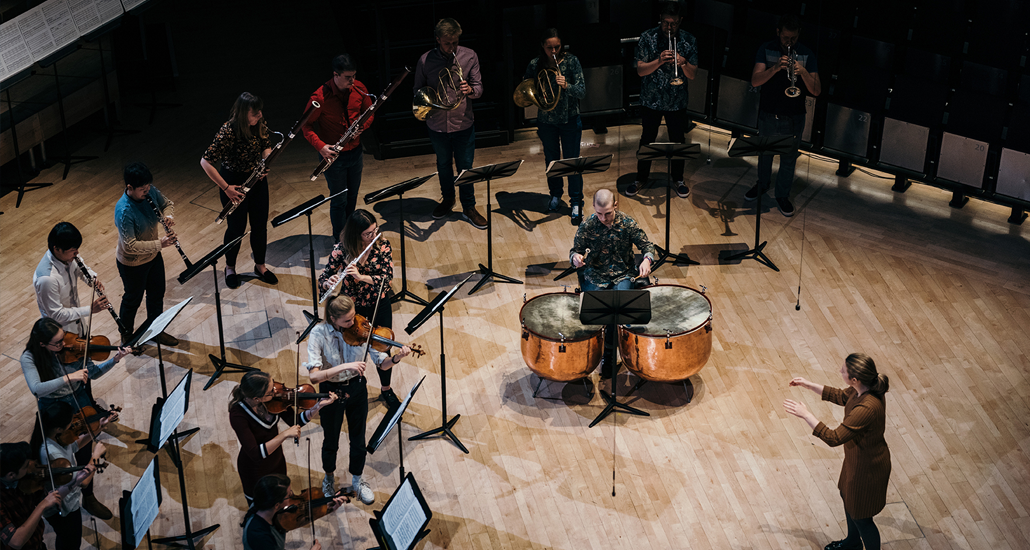Rehearsal 4

As conductors we will often find ourselves rehearsing musicians who play instruments that we are not familiar with. Even in an ensemble like a brass band, there are percussionists as well as brass players. In an orchestra, as well as the four main instrumental families, there will be occasional visitors from the keyboard department, the mysteries of the harp, and singers – whether as individual soloists or choirs. Throw in some electric or bass guitars in a pops gig, and assorted electronics and samples in a new music context, and it becomes clear that being an expert in everything is impossible.
How much should we study all these instruments then? In some ways, at a high professional level, specific knowledge becomes irrelevant. The players don’t need you to tell them how to play their instrument, they want you to tell them how the music should sound. There’s a lot of truth in that, however ignorance is not bliss in this case. It would be deeply patronising for a non-string-playing conductor to tell professional players how to play their instruments, but if they have no understanding of bowings, the effect of different contact points on the string, how crossing the string will affect the line etc., then there will be at least some lack of respect from the players.
It is sometimes said that you must have a background as a string player to conduct an orchestra well, given that they make up such a large percentage of the group. The number of legendary conductors who were not string players would seem to disprove this theory! In some ways, a background as a wind or brass player can be an advantage if you have a strong, well-respected Leader/Concertmaster to work with. You might like to watch this interview with James Clark, one of the UK’s most respected orchestral leaders, where he discusses the interaction between Concertmaster and Conductor. [insert link to James Clark interview in Careers Office]
With less expert musicians, one could say that a wider pedagogical knowledge becomes more important. The musicians may need more specific advice on technical matters. On the other hand, especially in a music education setting, it is much more likely that colleagues will be on hand to offer specialist advice, either through sectionals or by being present in tutti rehearsals. This is potentially a great resource for us to learn from.
What follows is a series of short articles from highly respected orchestral musicians who we asked to share some brief ideas of the sort of things conductors should know about their instrument or instrument family. Such brevity necessarily means this advice is in no way comprehensive, so we suggest treating this as an introductory overview, before further study on what is relevant to you in the context of your own background, and the level and genre you are working in.
If you would like to read a book, Christopher Adey’s Orchestral Performance (Faber & Faber) contains some excellent material. Another great way to learn about instrumental families you are not familiar with is to attend sectional rehearsals of youth or student orchestras. Interesting and inspiring though it undoubtedly is to observe the world’s great orchestras and conductors rehearse, what you won’t learn in that environment is what to say to a string section that isn’t making a homogenous sound or to a woodwind section that is struggling to find a pitch centre. Sectional rehearsals taken by expert practitioners working with good level, but not yet professional, players will be incredibly insightful.